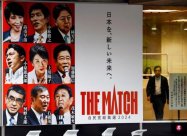Source: Bloomberg
Author: Ma Fangjing, TORU Fujioka
China ’s preparation for the stock market that China is in trouble to save the predicament of more than 20 trillion (RMB, the same below, about S $ 266.3 billion), which is reminiscentHowever, in history, after the initial excitement of the market, it was basically not supplemented by boosting the economy.
This huge cost -spenting move is one of the stimulus policies announced by senior officials such as Pan Gongsheng, Pan Gongsheng, Pan Gongsheng, Pan Gongsheng, Pan Gongsheng.Beijing hopes to use this to stop the further loss of residents' wealth and inject a strong heart into the economic injection of the economic crisis, deepening the shrinkage and weak demand in recent years.
From the perspective of Japanese experience, this will be a difficult task.In this country with water in China, the central bank's buying exchange fund that year failed to help the economy to achieve currency and swelling.
"China's loose measures may produce some short -term effects, but they will only help time," said Shigeto Nagai, the head of Japan Research Institute of Economic Research and the head of the former Japan Central Bank.
Nagai said that the ETF purchase of the Bank of Japan is quite effective in solving the impact of the short -term market, but it is not to stimulate the measures that can be taken for a long time.
Pan Gongsheng said on Tuesday that the central bank's support for the exchange of the stock market plus the first phase of the stock repurchase and the increase in the first loan in total reached 800 billion yuan. In the future, the future will gradually expand.Demand of funds.In addition, he revealed that the official is still studying the stock market Pingxun Fund.
Investors were excited about this, and the stimulus measures have risen by 6%since the announcement of the announcement.The analysts of HSBC Holdings said the move was "game change".
Unprecedented measures to transport liquidity to the stock market may help the market to find the bottom and support the rebound before the end of the year.
But according to Bloomberg's calculation, the first phase of the first phase of the central bank's commitment is 800 billion yuan, which is not much higher than the average daily turnover of A shares so far this year.
Before that, the "national team" and other "national teams" such as the Central Huijin of the Sovereignty Fortune Fund were already buying stock ETFs.
So far this year, the central Huijin has bought more than $ 90 billion (S $ 115.9 billion), and according to the Bloomberg industry research estimates, this accounts for more than 80%of the stock ETF funds in 2024.
"These measures should help improve investor confidence and liquidity and promote a positive response in the shore and offshore markets," said Laura Wang, chief Chinese stock strategist at Morgan Stanley.The scale and its sustainability depends on whether it can successfully get rid of shrinkage and the bottom of the corporate profit growth. "
This move is based on China's official long -term involved in the capital market, but the role of the central bank in intervention is not clear.The rescue after the outbreak of the stock market in China in 2005 was led by the China Securities Regulatory Commission.
Ten years later, the one -time depreciation of the People's Bank of China on the renminbi has led to a sharp decline in local currency, capital fleeing, and further weakening of the stock market.
At that time, the central government also provided support for the market.China Securities and Finance Co., Ltd. and other official background entities formed the so -called "national team" to throw trillions of dollars, of which some funds borrowed from the central bank and commercial banks.The People's Bank of China allegedly provided funds but the specific figures have never been made public.
"In terms of signal, this is a substantial development, reminiscent of the script of 2015, because the use of the asset -liability statement of the Bank of China means sufficient firepower," Barclays analyst Kaanhari Singh and others are in the people.A research report wrote, "But whether the stock market can continue to rebound will depend on whether the residents will switch to the stock market."
China's past rescue has been very effective.The base index of Shanghai and Shenzhen is nearly 30%lower than the peak in mid -2015.Although the official actions may help to alleviate panic selling in the short term, in this market that is still mainly driven by retail investors, corporate profitability and resident investment trend play a biggest role.
Bloomberg economist analyzes that the People's Bank of China provides liquidity support to financial institutions to support the stock market. Similar to other central banks taking unconventional measures during the period when the market is extremely tight, although the People's Bank of China will not be like the Bank of Japan and the Bank of Japan andThe Hong Kong Monetary Authority had previously involved in the stock market so directly.
The stock purchase of the Bank of Japan for more than ten years has also provided experience in China.
The Bank of Japan bought about $ 258 billion before the operation was officially stopped in March.The agency became the largest stock holder in the country in 2020, so he also had a deep understanding of his excessive participation in the market.
Morgan Stanley's analyst led by Chetan Ahya pointed out in a report on Tuesday that the move brought "short -term market rising but long -term long -term impact".
"Just as we see from Japan's experience, the main revelation is that the sustainability and scale of the rebound of the asset market can only depend on whether it can be successful in the tightening of currency, and whether the profit growth of corporate profit can bottom out and recover the recovery."They said.




